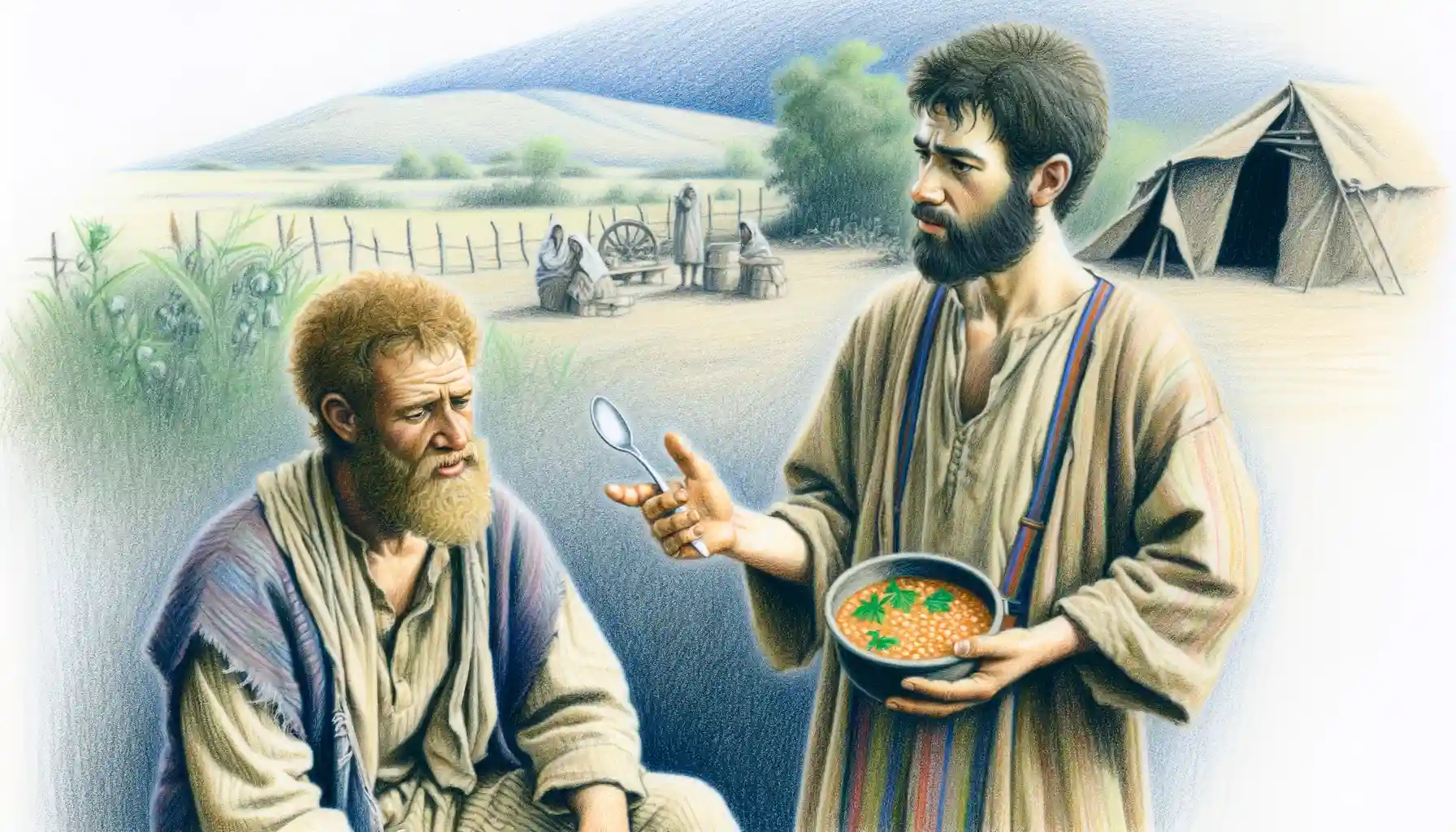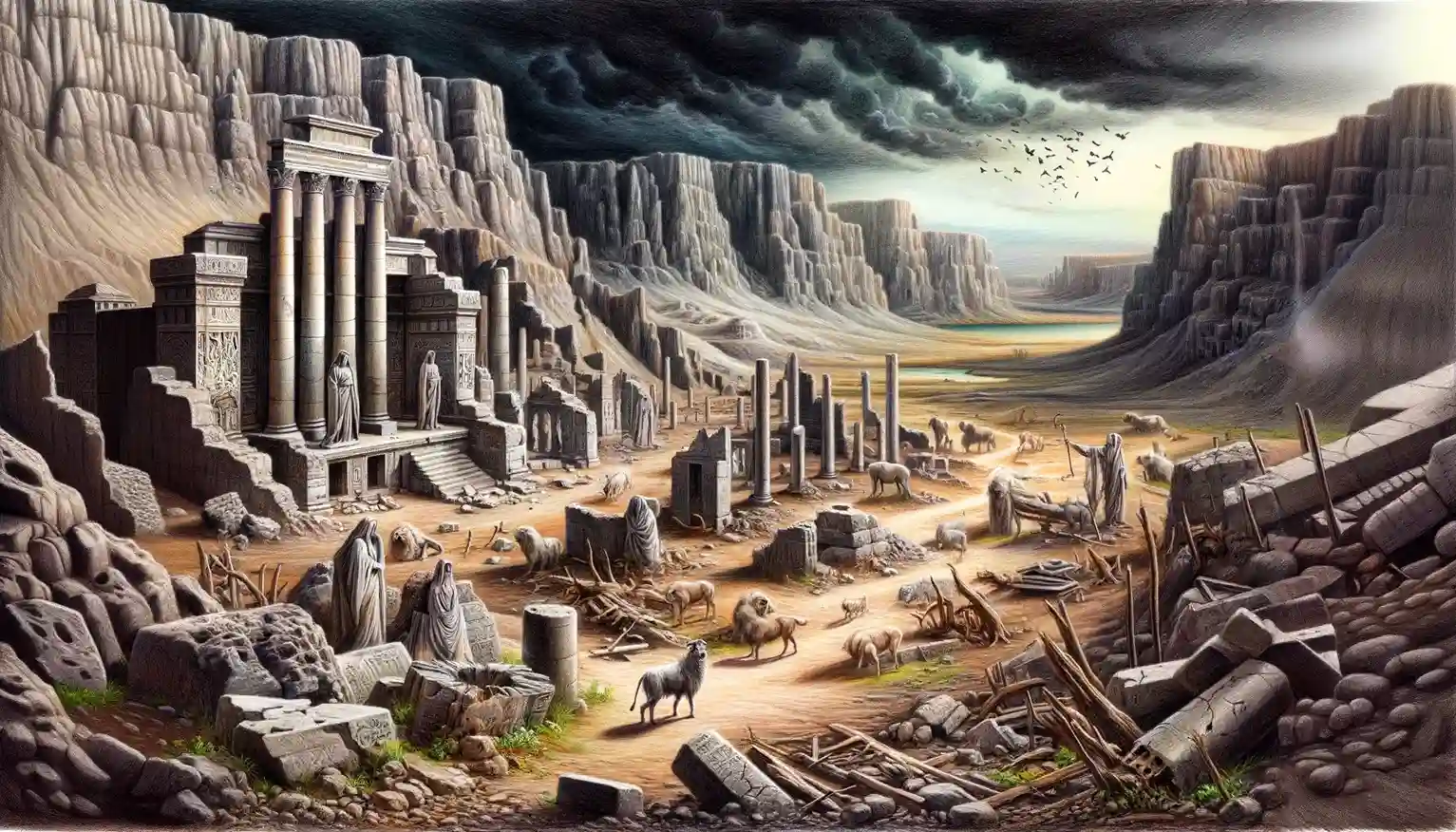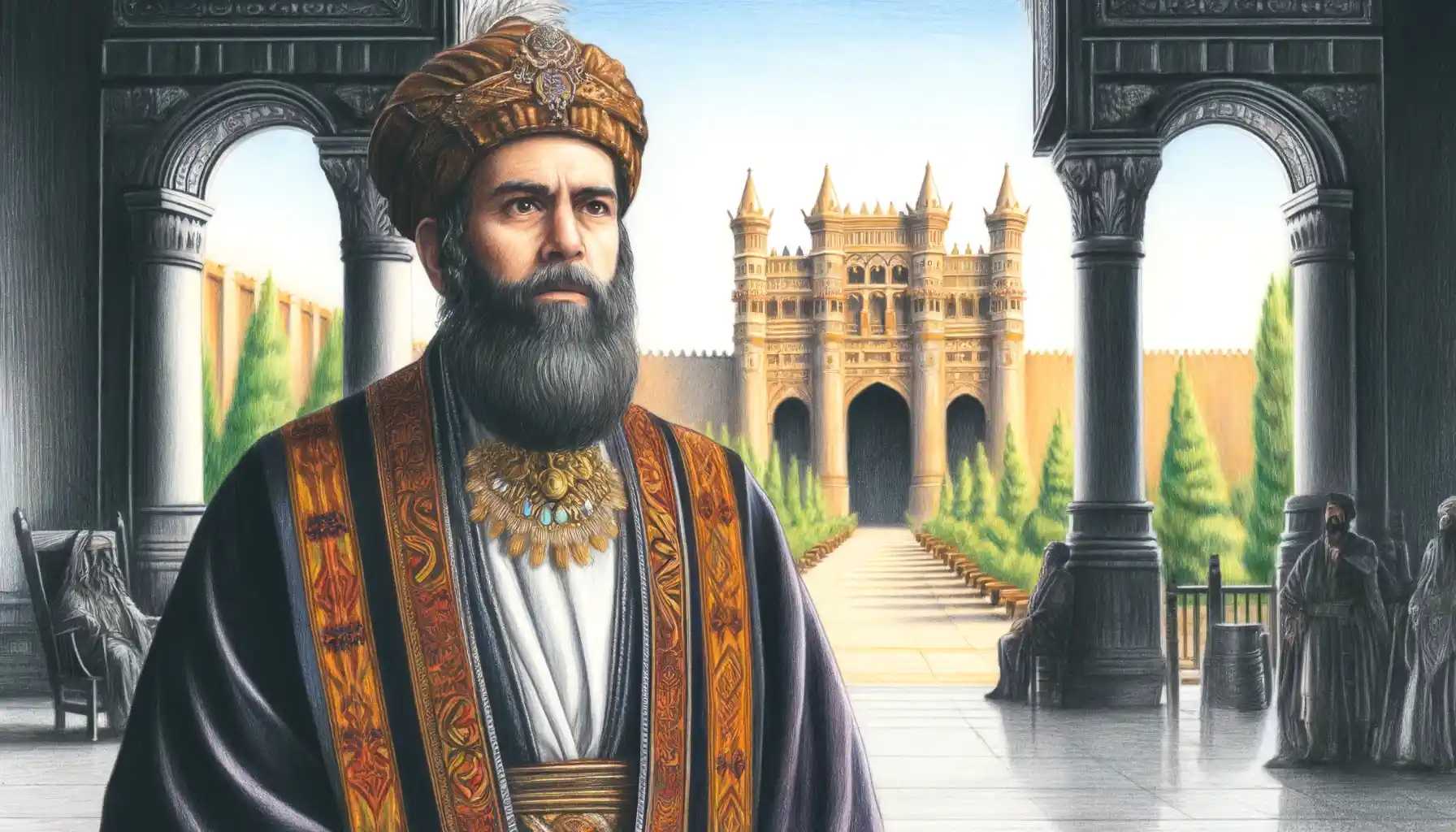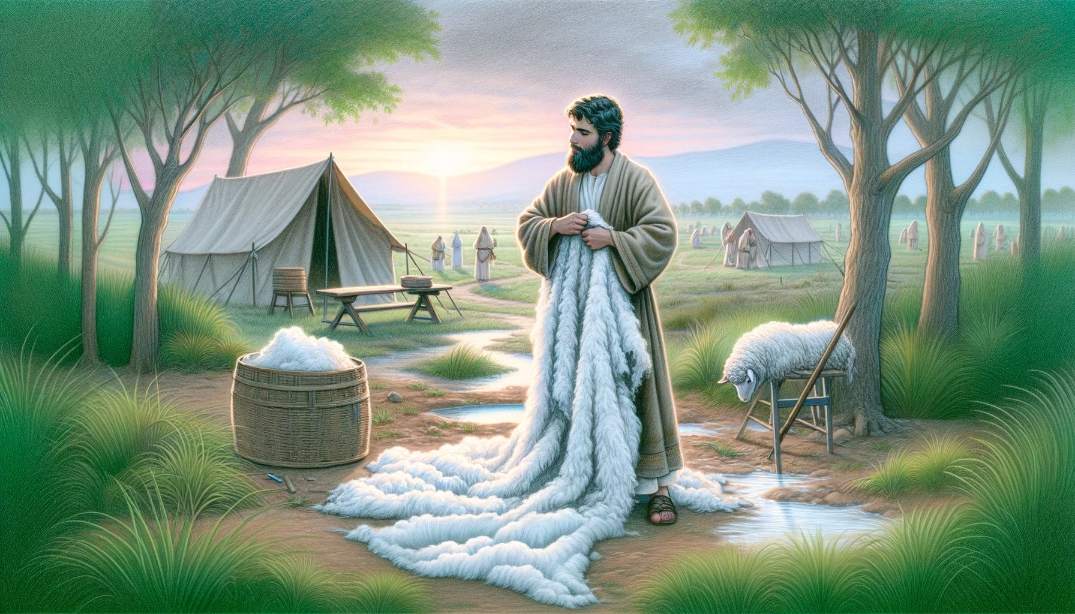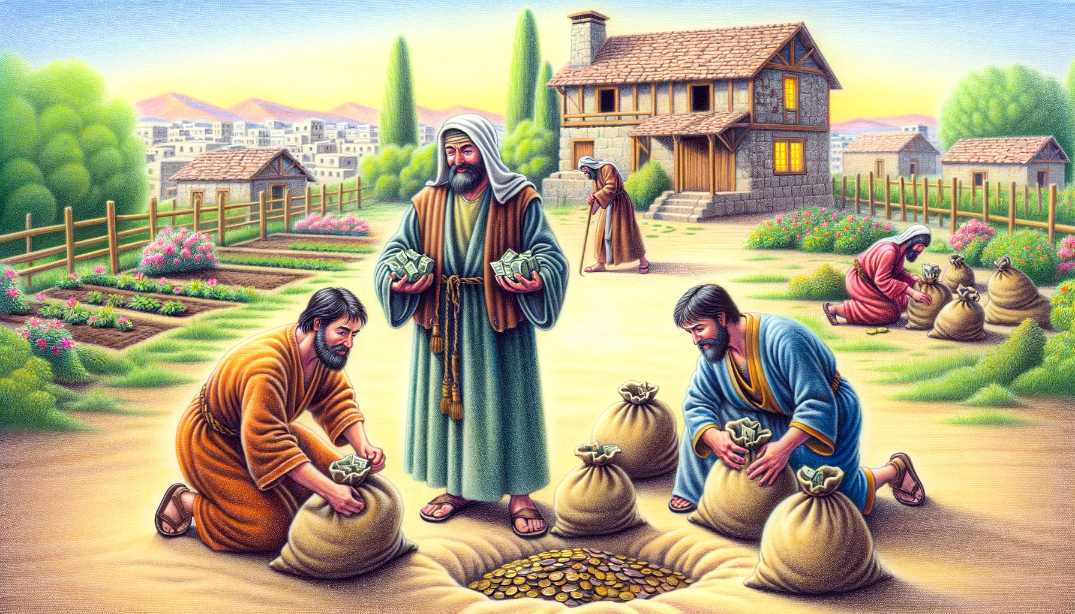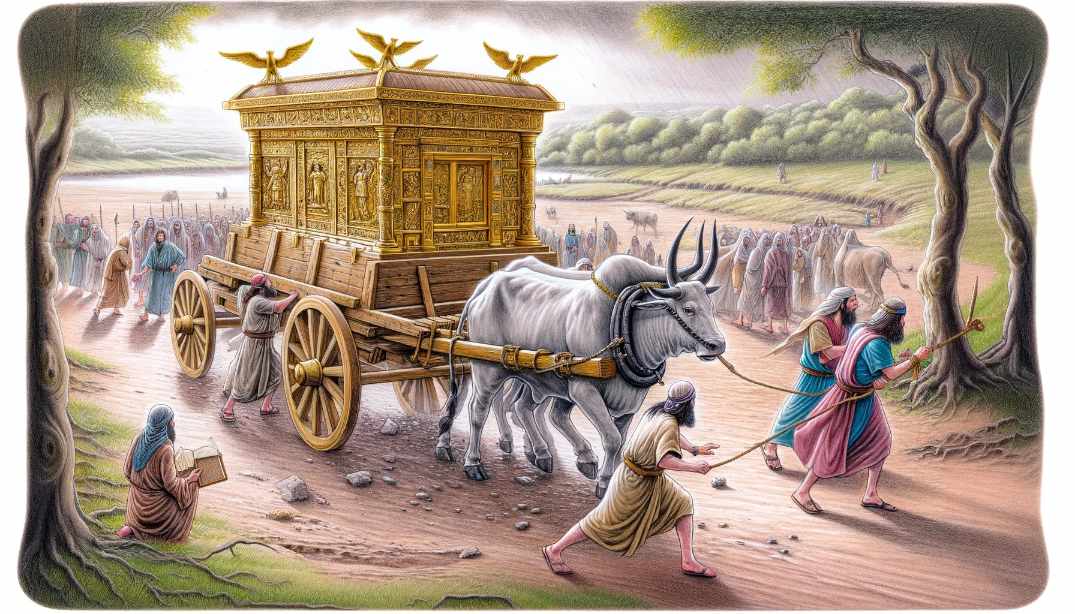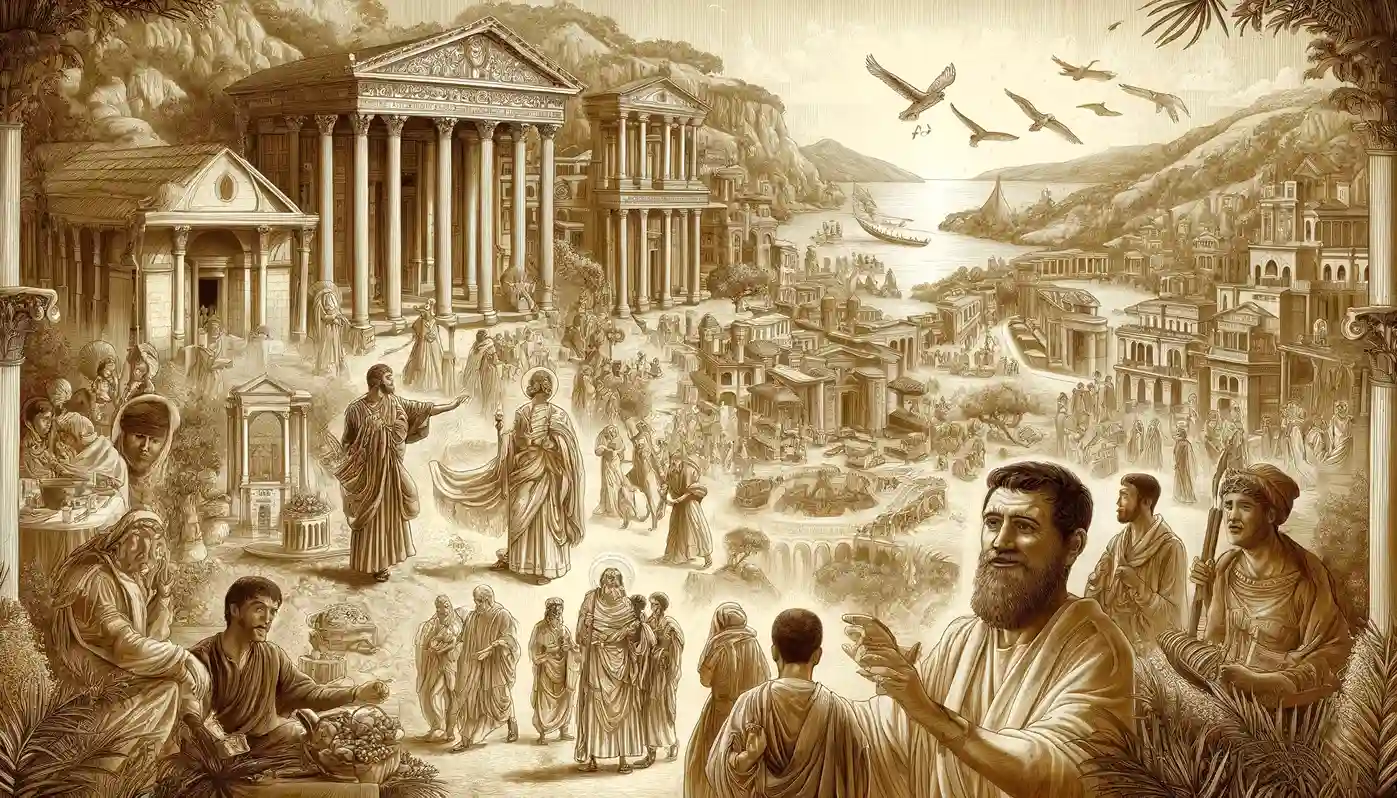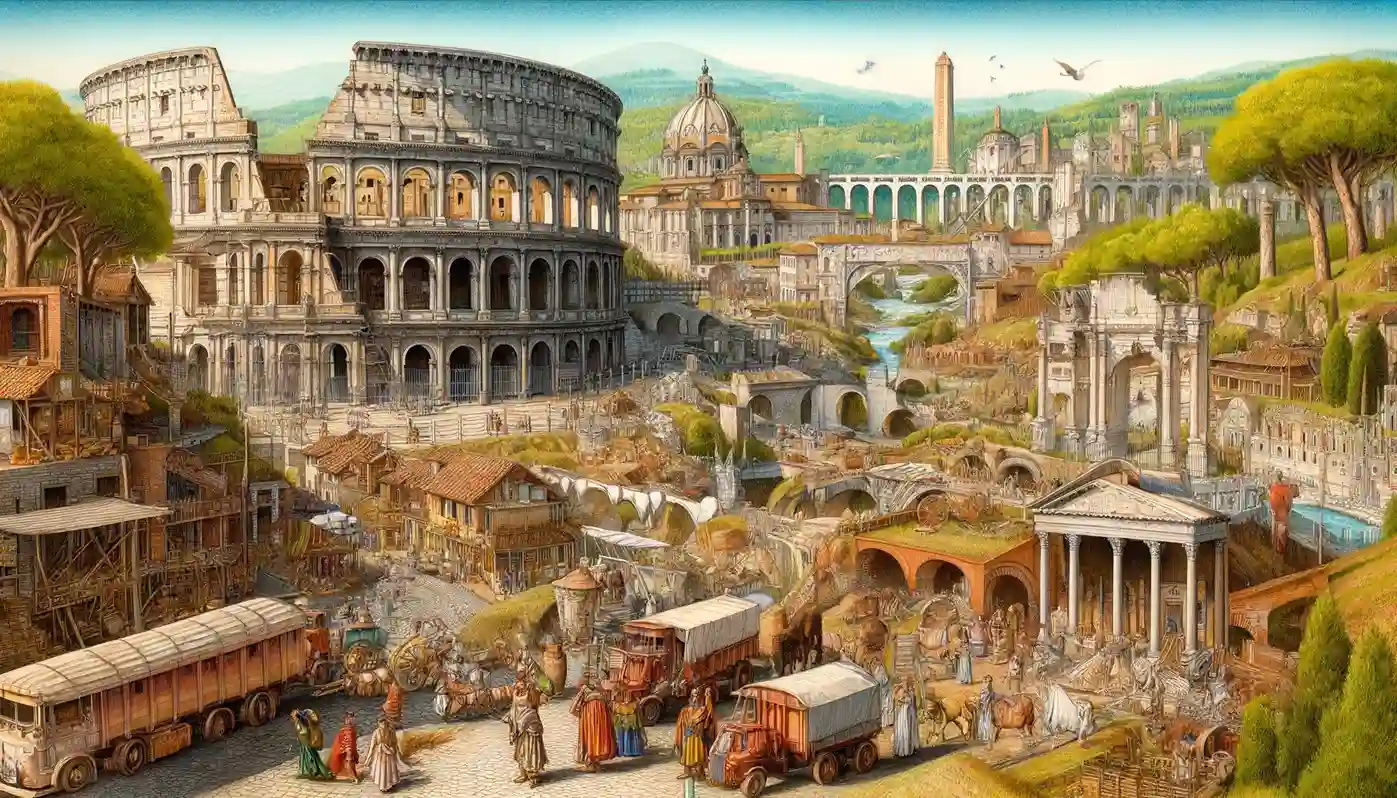Esau sold his birthright to his younger brother Jacob for a meal, a decision that demonstrated his disregard for his heritage and had lasting consequences on the lineage and destiny of the Israelites.
The judgment against Edom is a recurring theme in the Old Testament, where the nation, descended from Esau, faces divine retribution for its pride, hostility, and betrayal of Israel, with prophetic books like Obadiah and Isaiah detailing its inevitable downfall.
Esther, the Jewish queen of Persia, displayed remarkable bravery and faith by risking her life to save her people from extermination, leading to the establishment of the festival of Purim.
Mordecai, a key figure in the Book of Esther, was a Jewish leader who helped save his people from annihilation through his bravery, wisdom, and the influence of his cousin Esther, leading to the establishment of the festival of Purim.
Gideon’s fleece is a biblical event where Gideon sought and received two miraculous signs from God involving a fleece of wool to confirm His promise to deliver Israel from the Midianites, highlighting themes of divine patience, human doubt, and the importance of faith and obedience.
The Parable of the Talents, found in Matthew 25:14-30, teaches the importance of faithfully using and investing the resources God entrusts to us.
The event of Uzzah and the Ark, where Uzzah was struck dead by God for touching the Ark to steady it during its transport to Jerusalem, underscores the absolute holiness of God, the importance of following His specific instructions, and serves as a cautionary tale about the need for reverence and obedience in approaching the divine presence.
Paul’s missionary journeys, spanning from Antioch to cities like Ephesus, Philippi, Athens, and Corinth, were pivotal in the spread of Christianity, marked by his dedication to preaching the Gospel, performing miracles, and establishing strong early Christian communities despite numerous challenges and opposition.
The Roman Empire, established in 27 BC by Augustus, was one of the most powerful and enduring empires in history, renowned for its advanced governance, military prowess, engineering marvels, and cultural influence, spanning three continents at its height, transitioning from polytheism to Christianity, and leaving a lasting legacy that profoundly shaped Western civilization before its decline and fall in 476 AD in the West, while the Eastern Roman Empire continued as the Byzantine Empire until 1453 AD.
Antioch, known as the “Cradle of Christianity,” was a pivotal city in early Christian history, serving as the first place where believers were called Christians, the launching point for Paul’s missionary journeys, and a key center for the inclusion of Gentiles in the faith, significantly shaping the spread and theological foundations of early Christianity.

